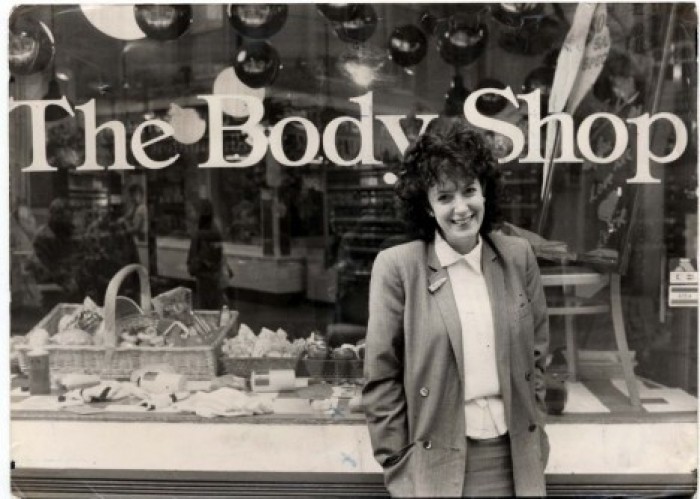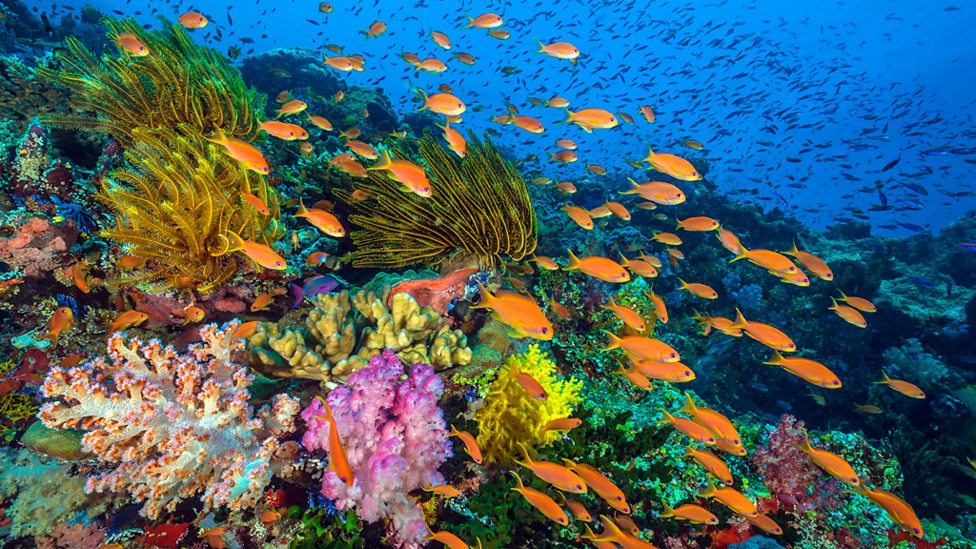When The Body Shop took Europe by storm in the late 70s it created a new gold standard for ethical beauty, promoting sustainable products, fair trade ingredients and refillable bottles while actively fighting for rainforests, animal rights and the environment — “many years before it became fashionable to do so” — as Gordon Brown put it in a tribute to their founder Anita Roddick in the wake of her death in 2007.
Research found that over half of British people don’t recycle bathroom products even when we can, and despite the microbead ban and 5p bag charge we’re still on course to have more plastic than fish in the sea by 2050.
Her influence is still seen everywhere, from high street radicals LUSH to the 2013 EU-wide ban on animal testing she campaigned tirelessly for alongside Cruelty Free International (formally BUAV) and celebritarians like Paul McCartney, Sienna Miller and M*rrissey. But despite the progress made with animal rights, beauty pollution is worse than ever, with the global industry creating 120 billion units of packaging every year, most of which isn’t recyclable. That’s nearly a millennium of decomposition. Garnier research found that over half of British people don’t recycle bathroom products even when we can, and despite the microbead ban and 5p bag charge we’re still on course to have more plastic than fish in the sea by 2050. Last year the Personal Care Products Council (which represents the interests of the global cosmetics and personal care industry) even protested the United Nations’ Clean Seas Campaign’ with the bizarre argument that the beauty industry doesn’t create quite as much plastic pollution as everybody else.

“Plastic is one of the biggest issues we face today, both as a company and citizens of the world,” Jessie Macneil-Brown, (Head of Global Campaigns at The Body Shop) tells i-D. “We have an Internal Plastics Committee and we’re working on a number of really exciting projects that we’ll be able to let you know about later this year. We’re looking not only at our packaging, but also on the product formulas inside — we know that everything you use has an impact on the planet. We’re tackling this through our Enrich Not Exploit™ Commitment, which holds us accountable to making progress every year to reduce our environmental footprint. Last year the demand to rid The Body Shop head offices of plastics and single use cups was so large that all staff have now received a reusable water bottle and coffee cup. This might seem like a small step but it’s an important one, if we work sustainability into our offices it will positively impact the rest of our business too.” The government discovered the importance of small steps when it came out that they’d bought a million disposable coffee cups and lids in one year, causing a PR disaster.
But environmentalism doesn’t begin and end with plastic. With the number of British vegans having quadrupled in the last decade, beauty brands are playing catch up with the increasingly animal free buying habits of even non-vegans. But when it comes to hair and make-up, that’s often easier said than done, as I’ve learned while developing products for my own brand. “Currently, 100% of Body Shop products are vegetarian,” Jessie tells me, “and about 60% (including 90% of skincare) are vegan. We’re not planning to become 100% vegan because we believe sustainably-sourced beeswax and honey, which we source through our Community Trade programme, are better than some synthetic alternatives, like petrolatum. Our local community partners in marginalised communities in Ethiopia and Cameroon source honey and beeswax organically using traditional farming methods that help protect the bee population.” PETA warns against mishandling and farmers cutting queen bees’ wings so that they can’t leave their colonies, but many argue beeswax can be ethical even if not technically vegan. Rose Marie Swift, founder of cult organic beauty range RMS, explains the brand’s reasoning behind using beeswax in certain products. “The question that goes deeper here is what the word “ethical” really means. Our bees are not killed or harmed for the (small amount of) wax that we use in our products, nor are they being harmed in any way whatsoever. The certified organic beeswax we use is from the mountains in South America where the bees are away from city pollution, pesticides, insecticides, herbicides, fungicides AND neocides. The deeper side of this equation is this: neocides are a family of pesticides used in conventional mono-farming and it has been directly linked to killing bees. So if one is not eating completely organic agriculture (food) etc. you are contributing to killing bees. An interesting conundrum don’t you think?” The complexities of trying to ensure guilt-free consumption are clear.
Although Europe (along with India, Norway, South Korea and New Zealand) has now completely banned cosmetics tested on animals, it still occurs frequently in America, and China refuses to sell beauty products if they haven’t been tested on animals first.
When the Coalition for Consumer Information on Cosmetics (CCIC) formed and launched the ‘Leaping Bunny’ logo in 1996 it created an official animal testing criteria for companies to follow in order to qualify. Although Europe (along with India, Norway, South Korea and New Zealand) has now completely banned cosmetics tested on animals, it still occurs frequently in America, and China refuses to sell beauty products if they haven’t been tested on animals first. “If a brand retails in an actual bricks and mortar store in China, they are required by law to animal test their products,” Rose explains. “This alone is a major deterrent for any ethical brand in making a decision to sell in China. We cannot and will not sell in China and jeopardise our credibility as an ethical brand.” The Body Shop’s new campaign, Forever Against Animal Testing, aims to end cosmetic animal testing globally. “It already has over 6.3 million signatures and is on track to be our biggest campaign ever,” says Jessie. ”Animal testing is completely unnecessary in cosmetics, yet 80% of countries have no ban and approximately 500,000 animals are tortured and die from these tests every year.“ MAC argue that ending animal testing in places like China can only happen by selling there (which they have since 2005) and working with local regulators — a decision that’s outraged customers worldwide. Last year Estée Lauder’s Vice President, Anna Klein, told Teen Vogue: “We understand that people are angry. We ask that they trust our intention, knowing that we are making a profit there, but we are also making progress.” She was referring to the brand’s work with the Institute for In Vitro Sciences (IIVS), a global organisation focussed on training scientists and providing lectures, lab demos, hands-on training, and data interpretation to help move toward the complete abolishing of animal testing across the world.
What then, does the future of ethical beauty hold? Despite the work of these forward thinking brands (along with other pioneers like Anastasia Beverly Hills, Jeffrey Star Cosmetics, Tarte and Kat Von D) the bad news still comes thick and fast. Glitter’s an global ecological disaster, wet wipes now account for 93% of UK sewer blockages and the UK’s recycling infrastructure is overburdened and that’s set to get worse as China and introduce bans on what “foreign garbage” they’ll accept. The government’s abstract four point plastic plan is all the more worrying considering it only came about after Michael ‘Green Brexit’ Gove was “haunted” by the same episode of Blue Planet 2 that had the rest of the country crying into our vegan ready-meals, as we watched one of the world’s most emotionally intelligent mammals carrying around her dead newborn, poisoned by milk contaminated with pollution. At times like these recycled lipstick can feel a little futile, but Rose Marie Swift remains positive. “I think people are becoming more and more aware of the questionable practices and ingredients in the beauty industry,” she tells me. “Consumers are now ready for a huge change and we are sitting back enthusiastically watching and waiting for an enormous transformation to happen. I’ll continue to be a mouthpiece about what I see wrong with the way the environment and animals are treated.” She points out the Environmental Working Group, Earth Justice and Sea Shepherd as just a few examples of the inspirational organisations still fighting the late, great Anita Roddick’s fight. “She founded The Body Shop over 40 years ago with one revolutionary idea,” says Jessie, “That business could be a force for good. This is still how we operate today, and we’ve adapted and evolved. What’s really exciting about beauty at the moment is the huge momentum coming from customers who want to shop with brands that stand for something; brands that tackle the issues of today and fight to create change.”
